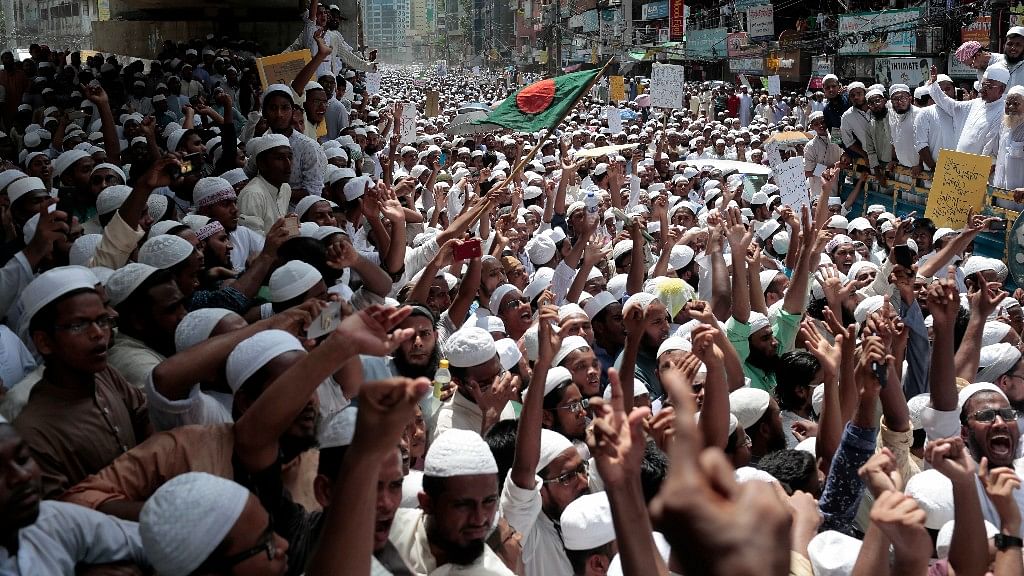10,000 Bangladeshi Hardliners March Against Rohingya Violence
The marchers were chanting slogans against Myanmar leader Aung San Suu Kyi, calling her a “terrorist”.

More than 10,000 Muslims in Bangladesh have marched toward Myanmar's embassy to protest the country's crackdown on Rohingya Muslims.
At least 412,000 ethnic Rohingya have fled from Buddhist-majority Myanmar in the past month and are living in overcrowded camps in Bangladesh. Many say their homes were burned by Myanmar's military or by Buddhist mobs.
The protesters chanted slogans and waved Bangladesh's flag as they marched through the streets of Dhaka, the capital. One banner said, "Stop killing Rohingya."
The march, organized by the hard-line Islamist group Hefazat-e-Islam, began at Bangladesh's main mosque but was stopped by police well before the protesters reached the embassy.
The marchers were chanting slogans against Myanmar leader Aung San Suu Kyi, calling her a "terrorist" and blaming her for not stopping the military-led attacks on the Rohingya Muslims.
The UN Security Council and many countries have condemned the violence.
Exhausted Rohingyas Recount Horrors
Rohingya villagers arriving in Bangladesh, exhausted from their dayslong escape from mobs of attackers and armed soldiers, recounted stories of neighbours killed and homes set ablaze.
"They set fire to homes of people and many elderly people got trapped inside. Young men fled home for the hills," said Mohammed Zakaria, 70.
He said he saw many bodies lying on the ground, often with their throats slit, as he and 14 other members of his family made their way from their home in Myanmar's Rakhine state.
Sitting outside a ramshackle tent in Balukhali, a hilly area recently designated by the Bangladesh government as the site of a new refugee camp, he said it took them 12 days to reach the safety of Bangladesh.
His son, Omar, 18, said their ordeal began about a month ago when Buddhist mobs attacked their homes.
"They didn't say anything. They just slaughtered Rohingya people wherever they found them," Omar said. "They have killed everybody, young and old."
The UN and other aid agencies have begun building shelters for new arrivals at the Balukhali site to provide protection as monsoon showers affect the area.
"We are working with the authorities and partners to build emergency shelters and coordinate the provision of relief supplies and basic services including registration, water, sanitation, and health care," said Yante Ismail of the UN refugee agency.
But unexpected dangers lurked, even in the camps in Bangladesh's border town of Cox's Bazar.
On Monday, wild elephants attacked two makeshift tents near a camp, killing a man and his son who were sleeping inside, an official said.
(#TalkingStalking: Have you ever been stalked? Share your experience with The Quint and inspire others to shatter the silence surrounding stalking. Send your stories to editor@thequint.com or WhatsApp @ +919999008335.)
(At The Quint, we are answerable only to our audience. Play an active role in shaping our journalism by becoming a member. Because the truth is worth it.)